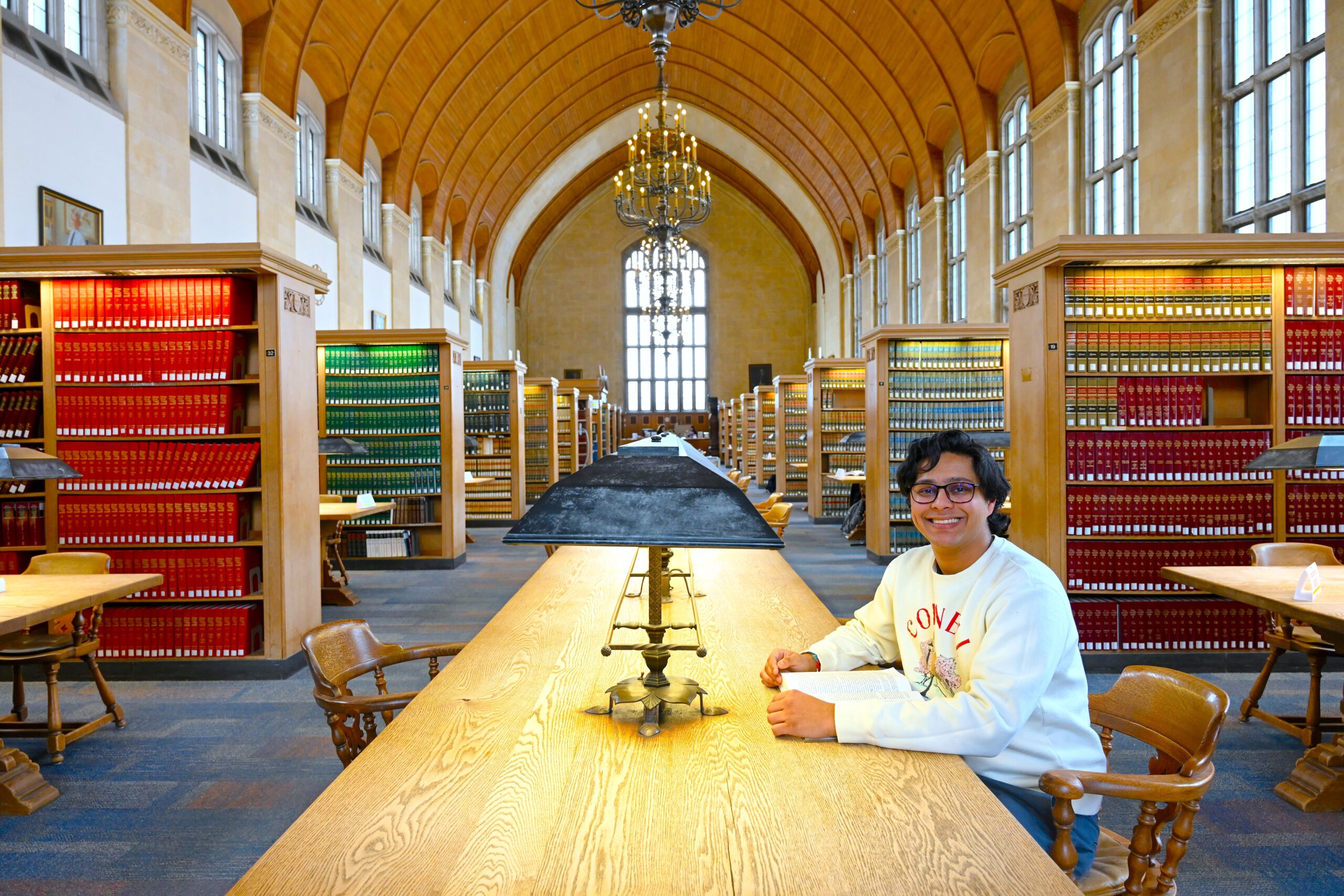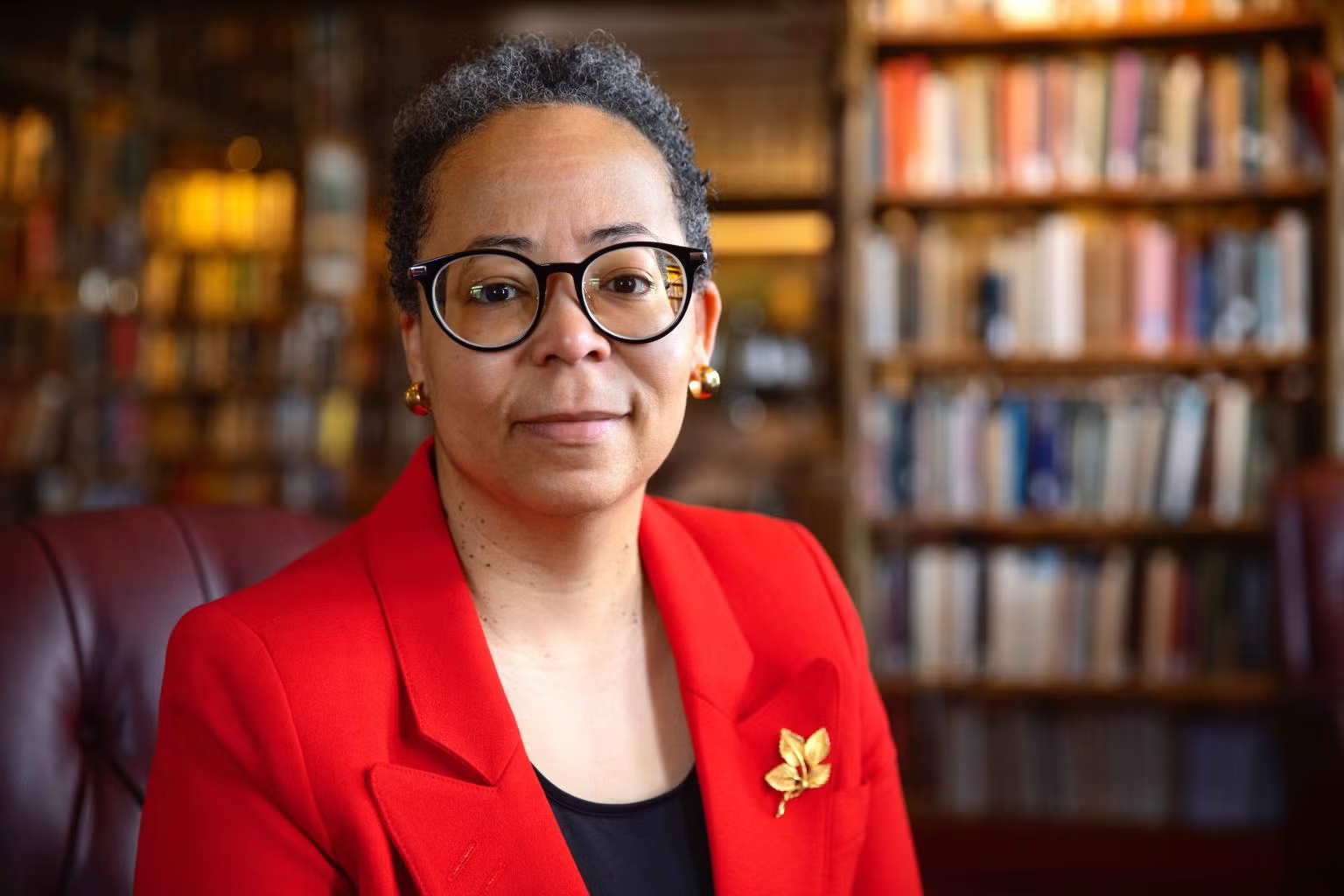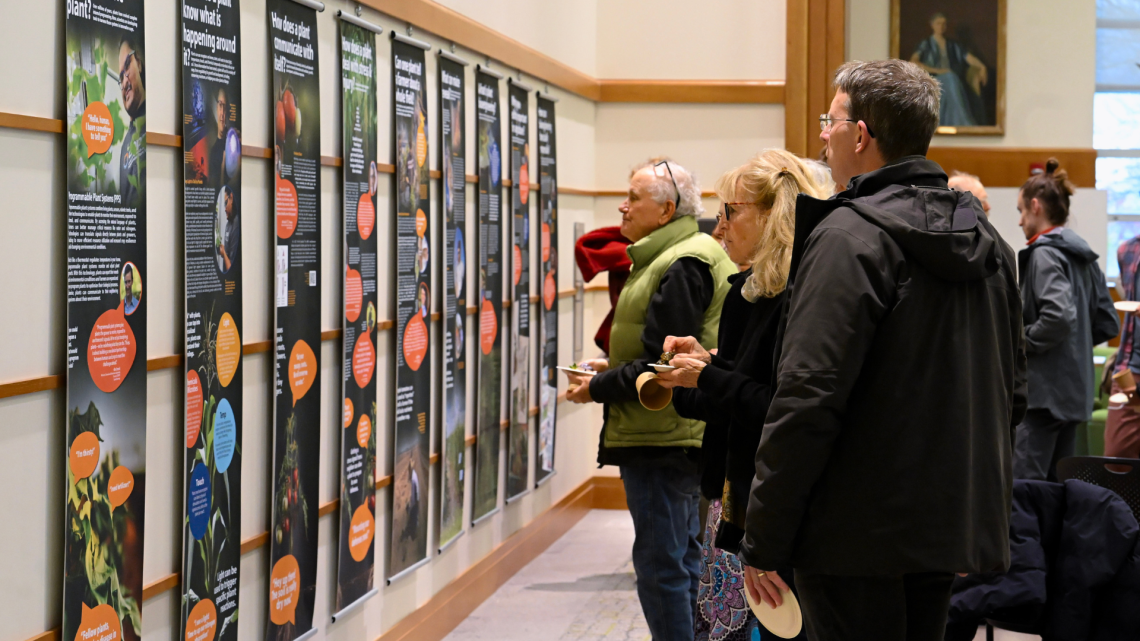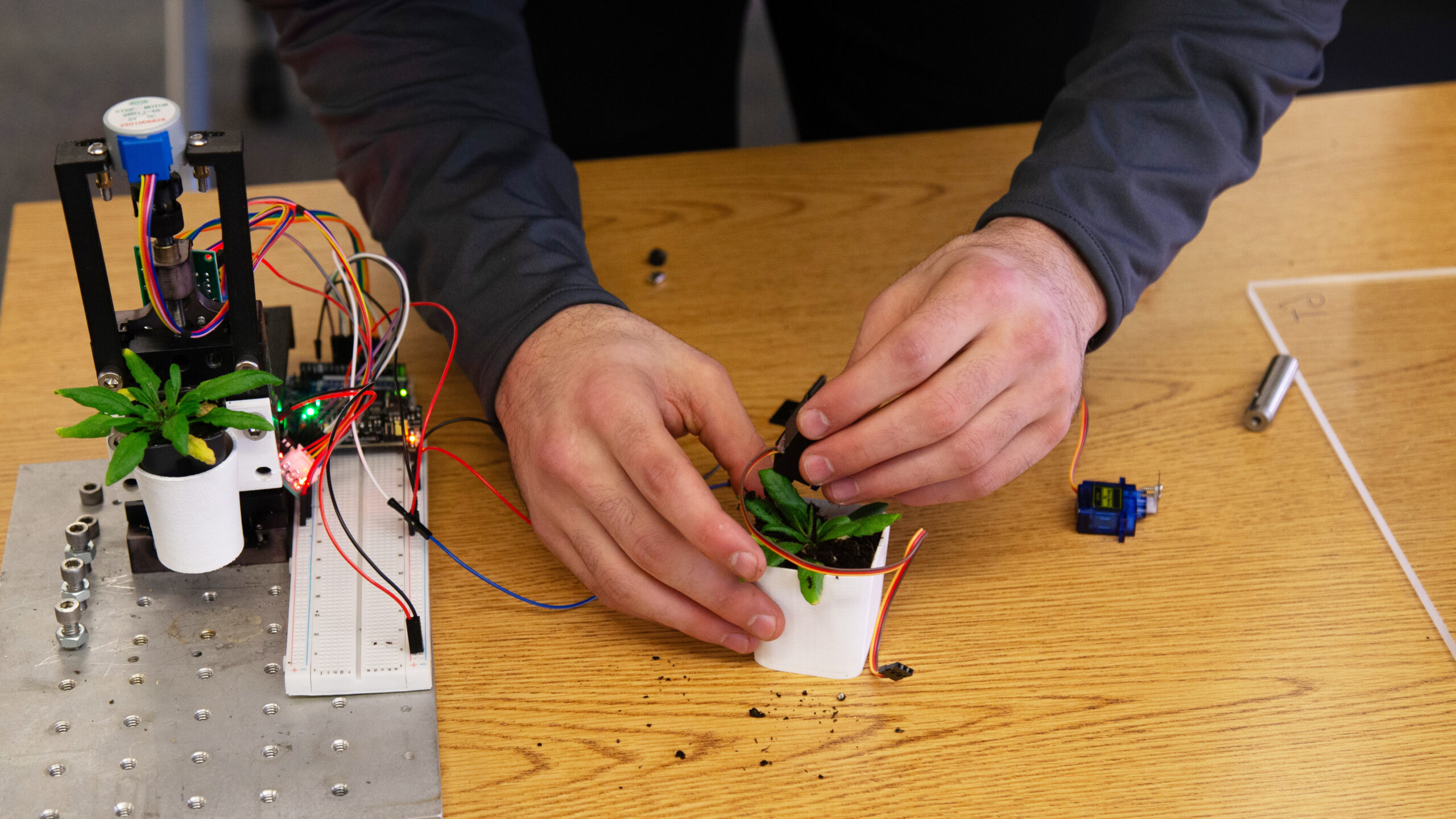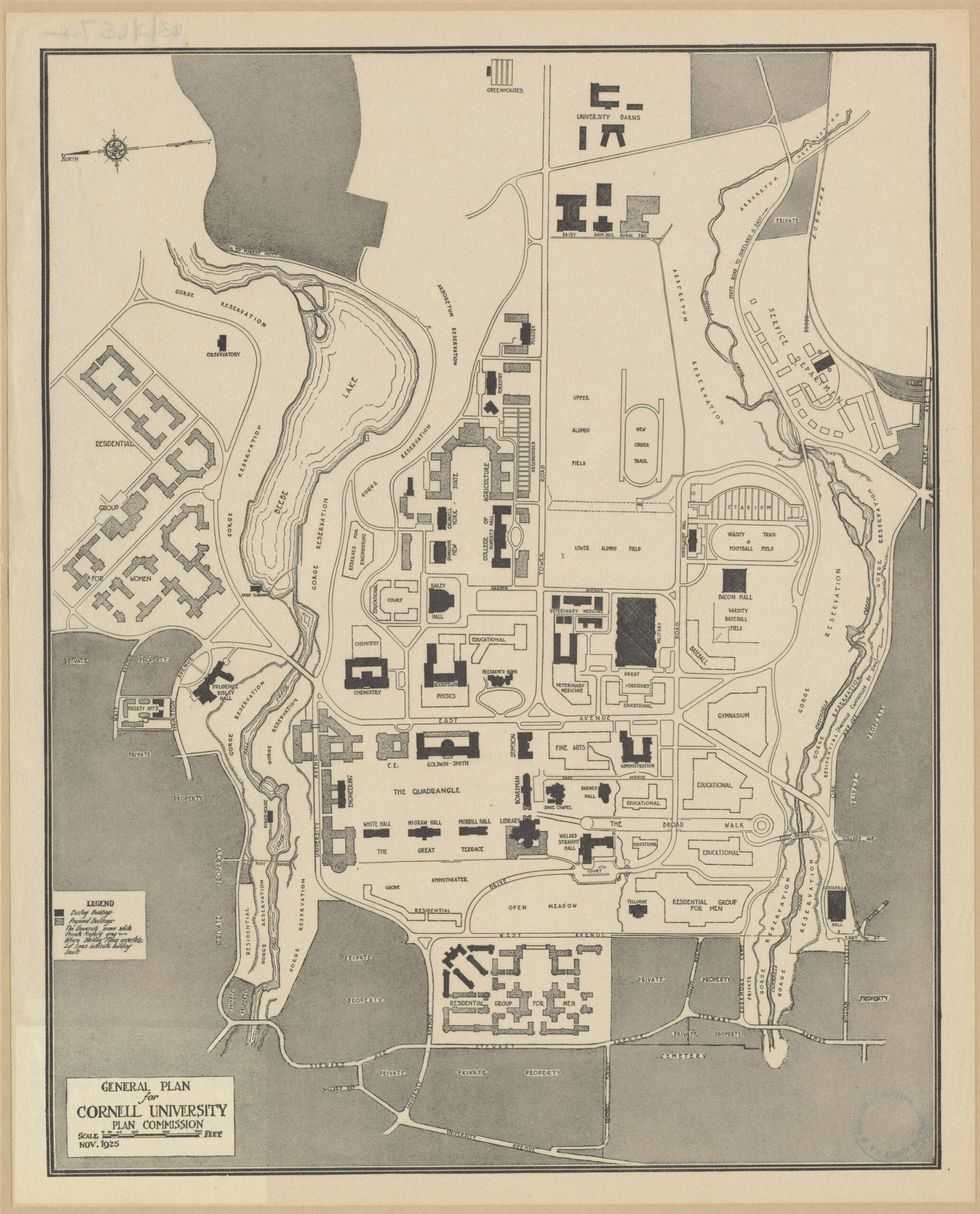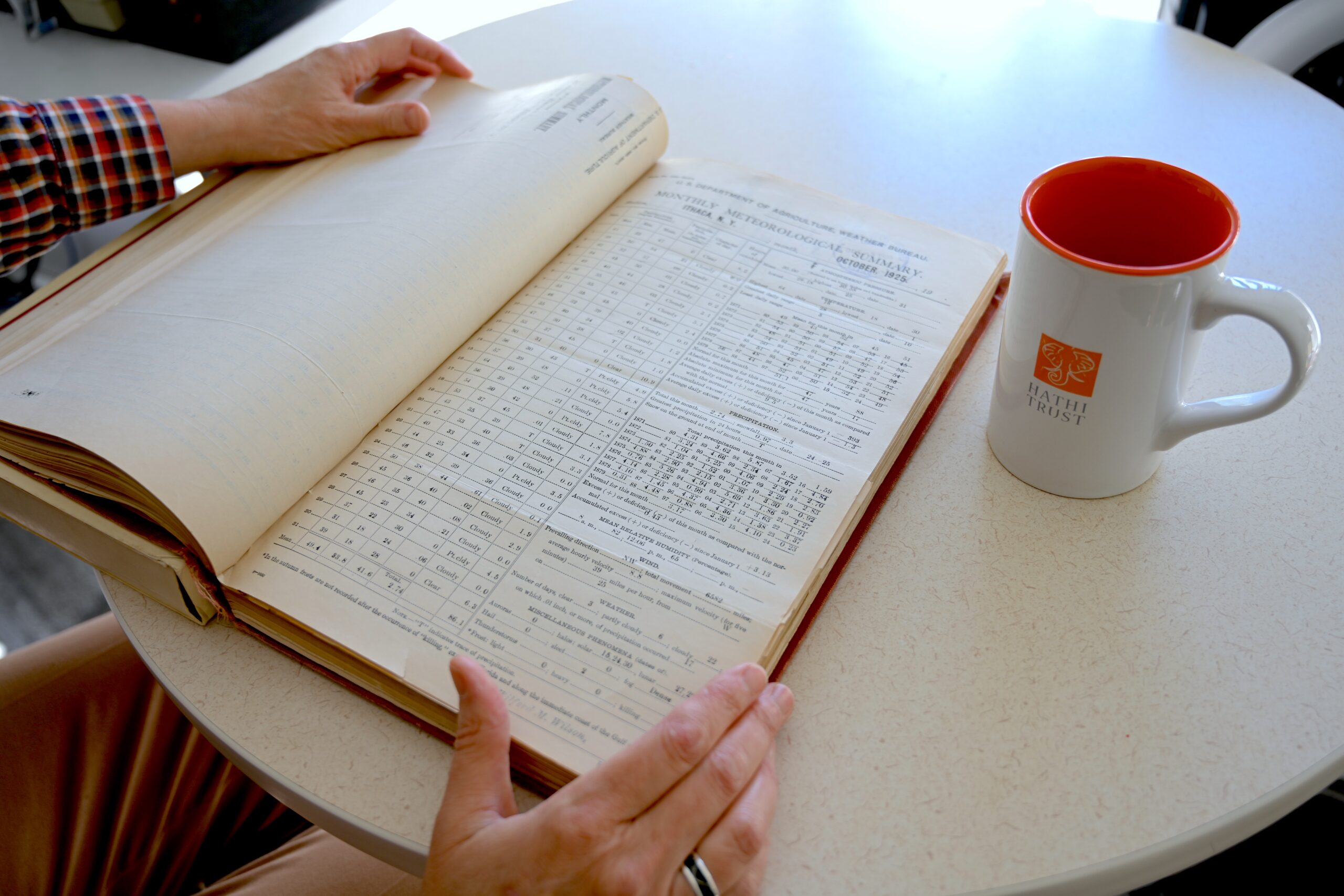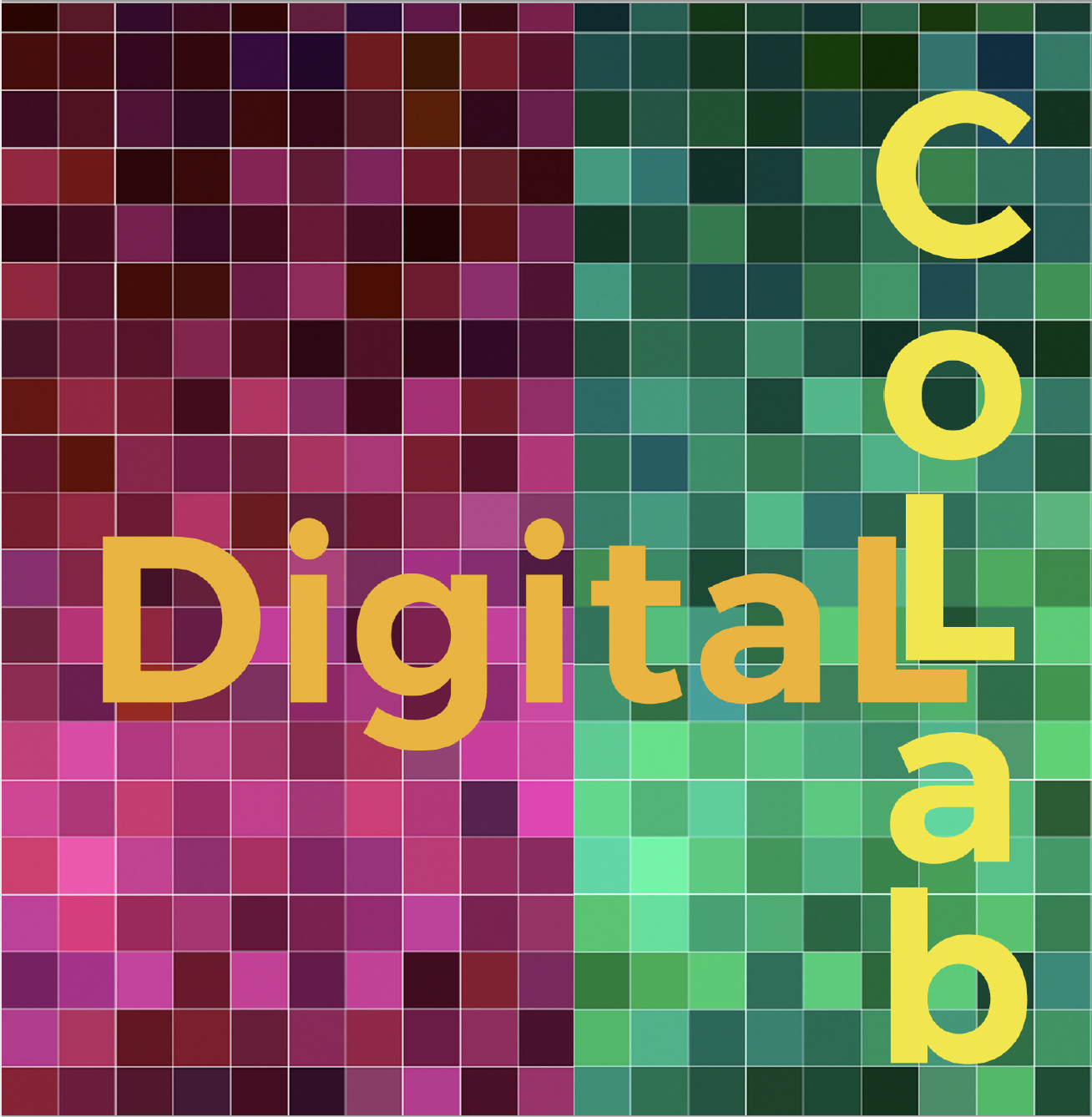
Home to Cornell University Library’s Digital Scholarship Services, the Digital CoLab on the 7th floor of Olin Library stimulates innovation in research and teaching while building connections among scholars across campus. It follows one simple formula: “People over projects.”
It’s an approach adapted from influential digital humanities scholar Miriam Posner, explained Eliza Bettinger, the director of Digital Scholarship Services and head of the Digital CoLab.
“We prioritize people, and that means helping them learn how to learn digital skills and tools and helping them feel connected to each other,” Bettinger said. “What’s fulfilling about this work is really keeping the human in the digital.”
With an emphasis in the humanities and interpretive social sciences, the Digital CoLab provides Cornell students and faculty with consultations, workshops, teaching support in the classroom, and individualized assistance on digital tools and methods—from computational text analysis (also known as text mining) to creating online exhibits and collections.
The Digital CoLab also runs the Summer Graduate Fellowship in Digital Humanities, an immersive program where selected Ph.D. students explore digital scholarship through collaborative workshops, readings, discussion and co-working on independent projects.
“We’re a hub for supporting a wide range of digital methods for research,” said Iliana Burgos, emerging data practices librarian.
“We strive to build community among practitioners across campus,” she said. “We practice a co-learning model to support skill-building. As students learn digital skills, they share insights with each other and with us instructors. We all learn alongside each other as we work through the highs and lows of creating digital work.”
Partnering in the classroom
Since the Digital CoLab was establishled in 2017, it has offered instructional support for classes in a range of disciplines—from anthropology to history, from classics to comparative literature.
Upon instructors’ invitation, Bettinger and Burgos give general introductions to digital scholarship as well as lessons on specific topics and methods.
“The instructional support provided by Eliza has been absolutely invaluable for my Early American Cartography seminar,” said Jon Parmenter, an associate professor from the Department of History.
“She has worked tirelessly to assist the students in their creation of digital portfolios on the Omeka platform—both in classroom teaching sessions and via in-person consulting,” Parmenter said, referring to his students’ final projects published through an open-source program.
“The Digital CoLab is a vital resource for bridging the gap between faculty teaching objectives and their implementation by students,” he said.
Co-working in the Digital CoLab
The Digital CoLab offers walk-in consultations and hosts weekly 3-hour long co-working sessions throughout the semester, where students can focus on their projects while also having a chance to share ideas with peers.
A second-year Ph.D. student investigating the history of colonial Latin America and the Carribean, Maria Paula Corredor attended these sessions religiously during her first year at Cornell.
“In that time, I knew I had all this support from Iliana and Eliza, but also from other scholars working on their digital humanities project,” she said.
With no prior knowledge about creating a website and online database, she started building “Atlantic Seascapes Project,” a digital archive about maritime history in the 19th century in the Caribbean, as seen in primary source documents of port workers, privateers, sailors, and pirates. (When asked about her research, Acosta would often joke that she was studying the real pirates of the Caribbean.) Corredor continues to build the archive with her advisor Ernesto Bassi in the Department of History and her other collaborators in Colombia.
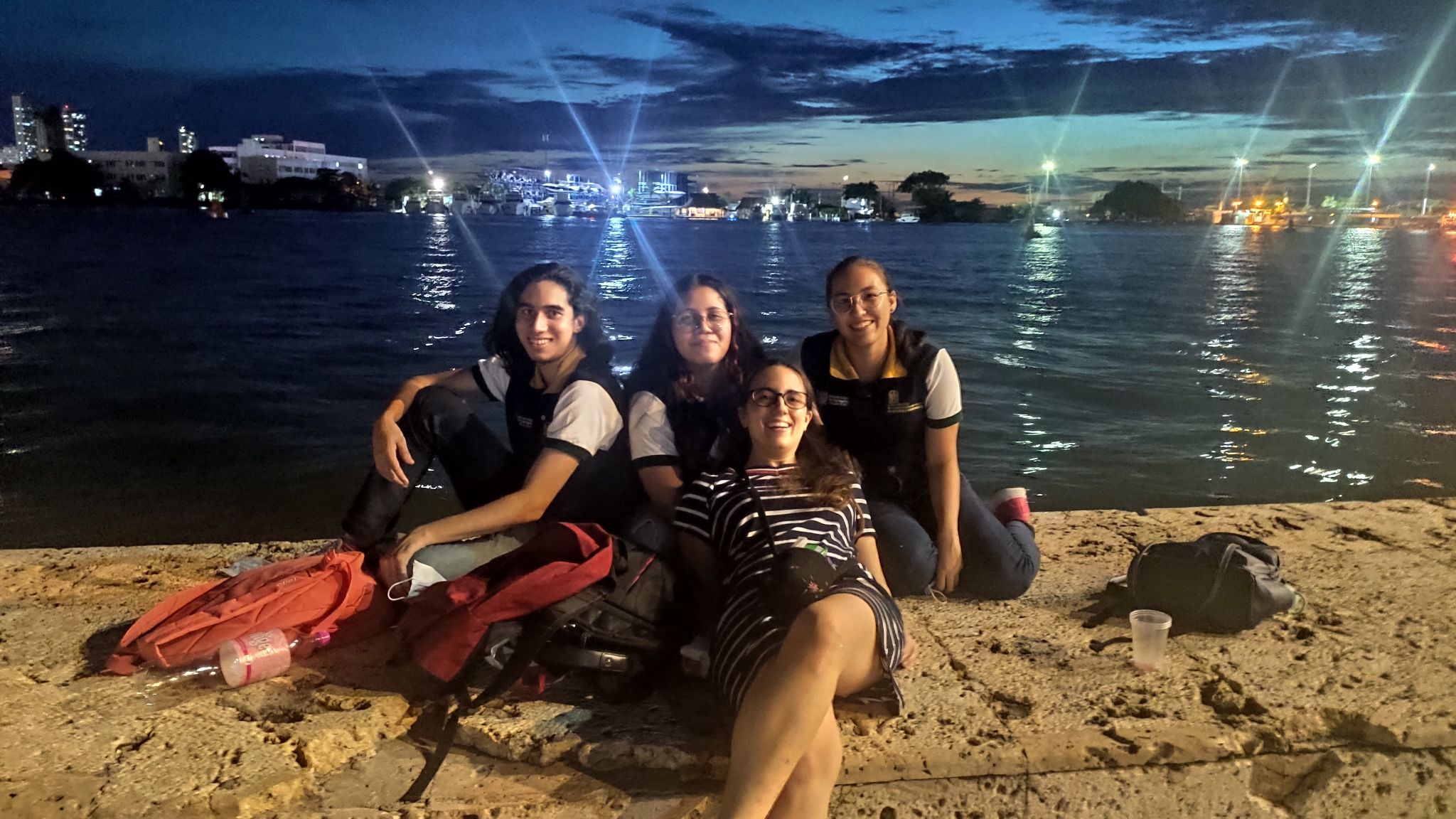
A history teacher and scholar before pursuing her Ph.D. at Cornell, Corredor has been digitizing and cataloging historical documents from various locations, including the national archives of Colombia, her native country. She sees the online archive project as benefiting not only scholars in the U.S. but also communities abroad, including her former students in the Colombian city of Cartagena on the Caribbean coast.
“In Cartagena, the archive is really poor, but for my students to travel to the national archives in Bogota requires a lot of money that they didn’t have,” she said. “For me, it was really important that they could have access to these materials.”
Immersed in innovation: The Summer Graduate Fellowship in Digital Humanities
Through a partnership between Cornell University Library and the Cornell Society for the Humanities, the Digital CoLab runs the Summer Graduate Fellowship in Digital Humanities, its flagship program.
The fellowship selects eight fellows from an applicant pool of Ph.D. students engaged in digital projects in the humanities. The small cohort is provided a stipend and immersed in workshops, readings, discussions, and coworking sessions over the course of six weeks, culminating in public presentations.
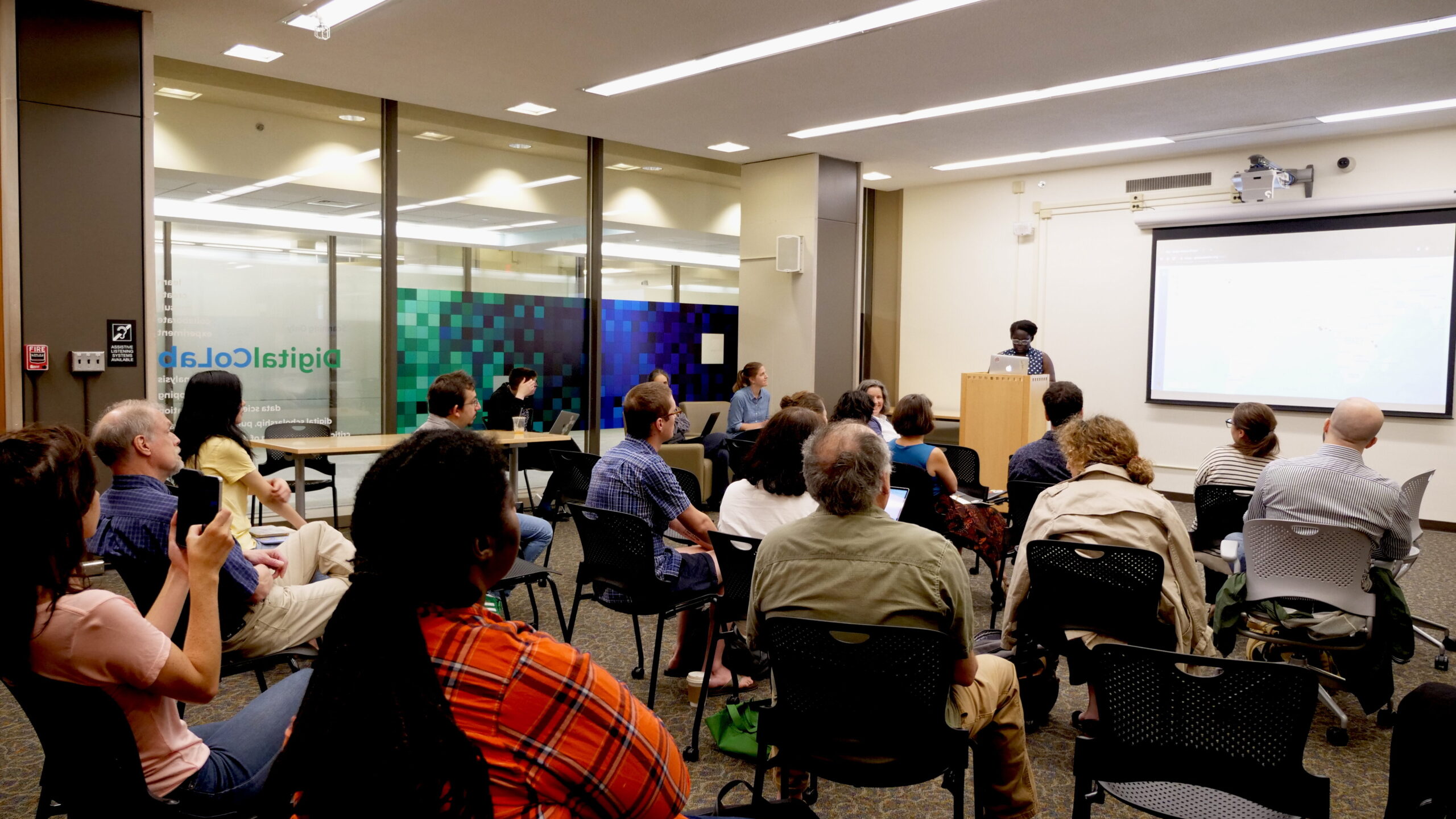
Crossing disciplines
Collaborating across disciplines and building a sense of community are hallmarks of the summer fellowship.
A second-year Ph.D. student in the Spanish section of the Department of Romance Languages, Waleska Solórzano said that she remains in touch with her peers from last summer’s fellowship who come from different fields, including music, art history, Southeast Asian studies, and computing and information sciences.
“It was really helpful to meet people outside of my department and have their input on my project, because academia can be really insular and it’s hard to see outside of how you’re trained,” she said. For her project, Solórzano built a still-growing digital directory called “The Venesporan Artists Project,” which she envisions as a resource for studying the Venezualan diaspora through the lens of creative practice. Its aim is “to bring together Venezuelan artists from all backgrounds, identities, and locations in one (digital) space to delve into diasporic experiences beyond definitions, distinguish patterns, form connections, and ignite conversations across a vast space,” she wrote on her website.
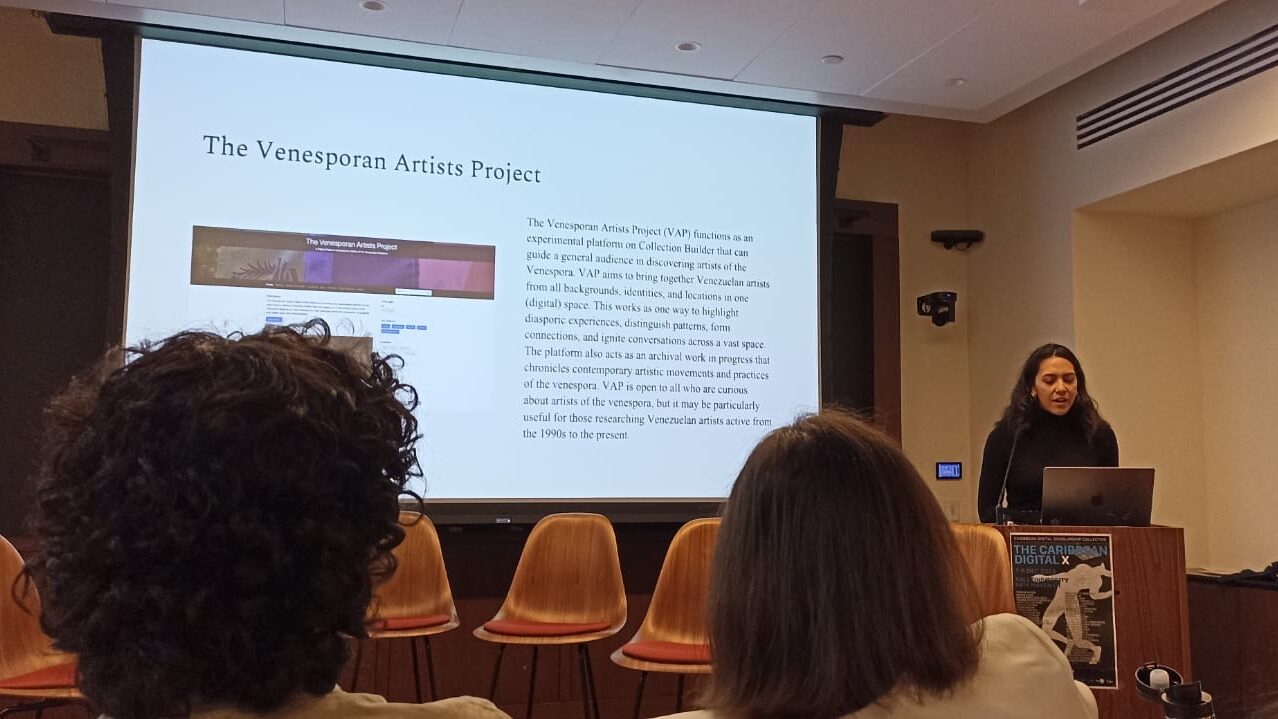
Learning to teach, teaching to learn
“If you can teach something, then you actually know it,” said sixth-year anthropology Ph.D. student Dusti Bridges, a fellow in 2022 who became a teaching assistant for following year.
“It allowed me to have such a solid foundation,” she said about her time learning different digital tools and skills during her fellowship. These included creating a searchable electronic database for the thousands of Indigenous artifacts she was studying for her dissertation on carved combs, and building upon her previous work with an online collection called “Onöndowa’ga:’ (Seneca) Haudenosaunee Archaeological Materials, circa 1688-1754,” a project that was supported by the library’s digitization program.
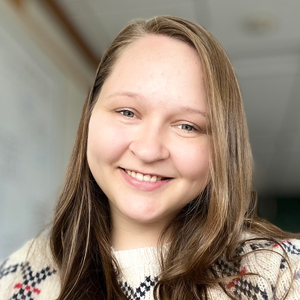
“I learned so much and was able to do so much that, now, any time someone is daydreaming or brainstorming with me about a project and they say ‘Oh, it’d be so great if we had a website for this or if we could recreate this virtually,’ I’m able to say, ‘Yeah, I know how to do that. That is possible,’” she said. More importantly, Bridges learned how to think through obstacles. “As a T.A. you have your knowledge, but half of this is knowing how to figure things out, so if someone comes to you with a problem you might not know how to fix, you have the skills to walk things through and troubleshoot,” she said. “That was a huge confidence boost.”
Advancing their fields
A scholar of African literature in the Department of Literatures in English, 4th year Ph.D. student Farah Bakaari applied for the summer fellowship in 2022 to address a huge gap.
“In African literature, there’s not really any centralized place where you can find metadata on works by period, region, year, etc.,” she said. “I wanted to compile a data set of some kind that gave me a good sense of what was published in the large terrain of thriving African literature field in the 20th century—very little of which makes its way into the cultural imagination of the present.”
Citing a study, Bakaari also bemoaned the lack of African literature in teaching curricula. “African literature is not making it into the classroom, and if it does, it’s always a pre-deterministic, predictable way of teaching two most famous texts,” she said.
During her fellowship, Bakaari started building an online database and interactive catalog called “Teaching African Literature,” and she was paired with librarian Fred Muratori, who provided expert help in compiling African authors and publications.
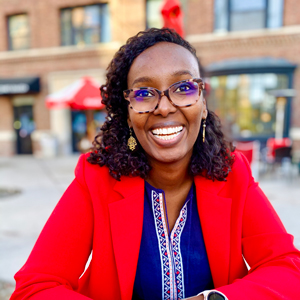
Bakaari plans to launch the website soon and make it possible for other scholars and teachers to upload their own teaching guides. As with other former fellows, she sees her project as an evolving work that will expand over the years.
“I think of it as like a service that I am doing for my field and for my profession,” she said.
Growing the Digital CoLab
From the summer fellowship program to daily one-on-one consultations, the Digital CoLab is committed to connecting with the intellectual life at Cornell while keeping abreast of important technological developments beyond it, according to Bettinger and Burgos.
“We’re really engaged with a lot of different issues that matter to our campus community,” Burgos said, mentioning issues and topics such as digital privacy, algorithmic literacy, and different ways technology impacts research.
Digital scholarship is constant and ever-evolving. “Even if we aren’t necessarily consulting, we’re always in touch with students and faculty in different units, not just across the humanities and social sciences, but also in information science,” Bettinger said. “To build capacity to enhance those connections on campus is very exciting.”
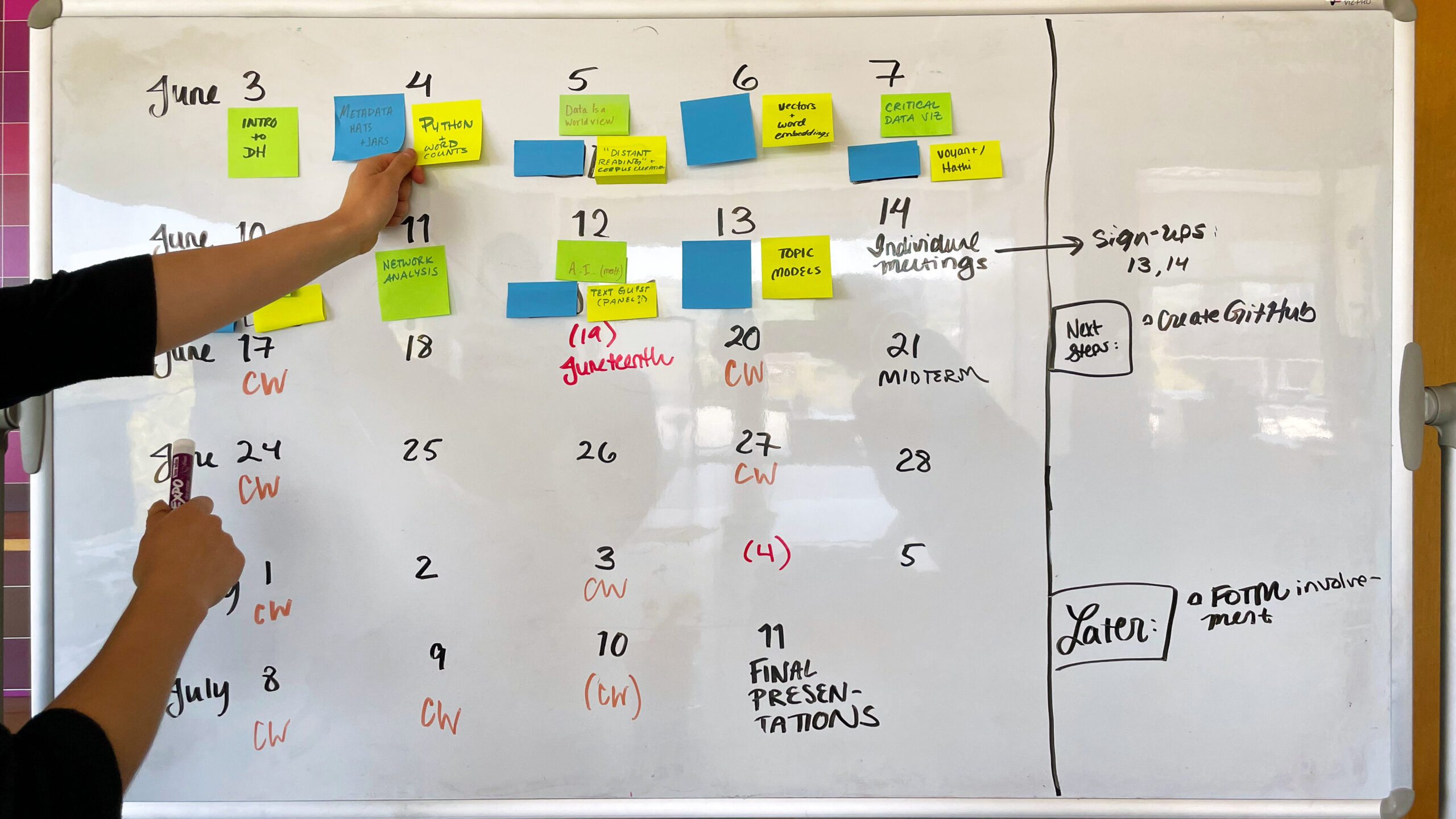
For more info about Digital Scholarship Services and the Digital CoLab, visit their website. For inquiries on how to make financial gifts to support the Digital CoLab and its programs, email Michelle Houle Hitz ’98, Cornell University Library’s director of Development, at mmh11@cornell.edu.
